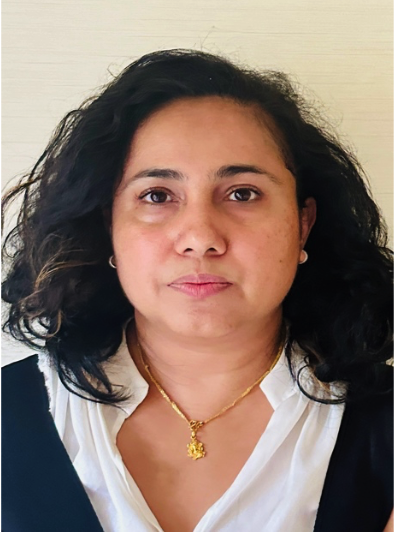We need to believe in the power of women to contribute equally alongside men toward the prosperity of our families, our communities and our nation
The global gender gap stands at 68 percent, according to World Economic Report 2018, which means on an average 32 percent gap still remains to be closed. Out of 149 countries assessed in the report, no country has been able to achieve parity and the progress toward parity continues to be slow. In addition, largest gap between men and women exists in political empowerment and economic participation and opportunities with 42 percent and 71 percent gender gap in economic participation and political empowerment respectively. It is estimated that the overall global gender parity will be achieved in 108 years, where the most challenging gaps to close are related to economic and political empowerment.
This current scenario clearly indicates that critical steps need to be taken to reduce gender disparity. Nepal ranks 105 in the Gender Gap Index among the 149 countries assessed by World Economic Forum. Literacy rate of women is 57.4 percent compared to male literacy rate of 75.1 percent according to Nepal’s Central Bureau of Statistics (2011). Research conducted by UN Women and more recently Equal Access International indicates that women in Nepal are mostly engaged in home-based, unpaid and unrecognized labour. And those who step outside their homes to access more employment and leadership opportunities often face deeply rooted social biases, structural barriers, gender-based discrimination, and violence from their families, communities and the markets. Issues such as equal pay for equal work, the amount of respect they receive from their male colleagues, lack of meaningful participation of women in decision-making are some of the challenges women in Nepal have been facing.
Moment of change
Nepal has achieved some remarkable results in terms of gender equality embracing the principles of proportional participation and inclusion after promulgation of the new constitution in 2015. It is among the 10 countries in the world to have a woman as a head of state. Approximately 29 percent of lawmakers in Nepal’s parliament are women and 35 percent of women are into civil services. This is a clear indication that Nepali society is taking progressive steps toward making a gender equitable nation.
Celebrating the inspiring stories of women’s courage, resilienc...

Even though the constitution has ensured non-discrimination, it has been an uphill battle for it to be translated into practice due to patriarchal beliefs and practices that still prevail. There are laws and policies in place ensuring women’s right to land and property. However, women are often prohibited from making decision about the property they own without the approval from the husband or father-in-law. One of the prominent reasons for this situation can be attributed to the inability of the influential women at the level of politics and economy to reach the villages and remote places in Nepal and raise awareness among women about the issues of gender equality and equity.
There is a pressing need to address gender equality and human rights in the policies while taking into account the patriarchal values and beliefs that exist in our communities. Provisions for various technical skills training are important to uplift the status of women but true empowerment also needs training women to exercise leadership and to teach them how to work in the markets. There is a need to focus not just on women empowerment but also an enabling environment and safe space for women to work so that women can compete with men on equal footing. Creating a supportive environment for women to realise and develop their full potential is the shared responsibility of every male member of any society. Promoting gender responsive policies is crucial to bringing systemic change for women equality and empowerment.
Campaign with purpose
Toward that end, Sahi Ho campaign was launched in Nepal by Equal Access International with support from UN Women. Within a short period of time, the campaign has succeeded in taking commendable steps in response to the recognized need to raise awareness, increase political will and challenge harmful norms and practices related to gender disparity—with the ultimate goal to support women’s leadership roles and economic empowerment. The campaign utilized community engagement, social media and traditional media to raise awareness and promote positive gender attitudes and norms at the local level. In addition, national level activities were organised to engage government and relevant stakeholders to identify the gaps and advocate for positive policy changes that facilitate a more gender equitable nation. The campaign has become visible as a common platform for the general public to put forward their issues and concerns to the legislators and government officials and use collective action from the local level to drive change at the national level.
After a year of efforts at different levels, the campaign has been able to witness some positive changes in the communities. The girls studying in public schools of Hetuada now have free access to sanitary pads in their schools. A gender-friendly facility for the girls in a school in Banke was also built after the issue was raised during one of the campaign activities. Local youths in Heutada have initiated several local campaigns of their own inspired Sahi Ho.
Moreover, the policy makers who took part in the campaign have demonstrated increased support by allocating budgets and taking actions to address the gaps and issues raised during the campaign events. Following the recommendations derived from the campaign activities, Sangachokgadi Municipality of Sindhupalchok district have allocated Rs 3.3 million for women which includes various programs for women’s economic empowerment and safer migration. “The campaign organised several activities in my municipality which has enabled me to gather evidence of the issues related to women’s economic empowerment. Inspired by the campaign, we have set up several training and entrepreneurship programs so that women in my municipality can be economically independent,” says Januka Parajuli, Deputy Mayor of Sangachokgadi Municipality.
Similarly, following the recommendations gathered during a dialogue between women farmers and local leaders in Sarlahi district, three million rupees has been allocated to ensure women’s access in agriculture and Rs 1.5 million to ensure regularity of female students in schools of Malangwa municipality. “The dialogue organized by Sahi Ho campaign in Sindhuli district helped us (local leaders) to become aware of the issues faced by the women farmers in my municipality. My participation in the campaign enabled me to identify first-hand the important women’s issues that needed to be addressed during the municipal budget allocation and planning process and hence was reflected in the local plans, programs and budget allocated in the last municipal assembly,” says Manju Devkota, Deputy Mayor of Kamalamai Municipality of Sindhuli district who was a participant in the dialogue.
The campaign has managed to trigger change. It has opened avenues for open discussion between our leaders and public. Campaigns like this must be implemented on all three levels of government. Only then we will be able to achieve the goals of planet 50-50 where gender equality is a lived reality as envisioned by UN Women. And for this every one of us has to work together and take well-grounded action promptly. Otherwise, it has been estimated, it will take another 217 years to bridge the gender gap in the economic sector.
Equality pays off
Several studies have indicated that if women are provided with equal opportunity in the labor market, the overall revenue of the nation increases significantly. Furthermore, empowering women and girls is the key to achieve sustainable development goals. Nepal has implemented federalism. This is the critical time to seek national commitments to address the challenges that are limiting women and girls from reaching their full potential.
Extensive steps need to be taken to eliminate violence against women and girls, promote meaningful participation of women in decision-making, and invest in national action plans and policies to create a gender equitable nation and increase public awareness to challenge adverse social norms and practices that seem to place women in a lower rung. We need to believe in the power of women to contribute equally alongside men toward the prosperity of our families, our communities and our nation.
Ultimately it is the responsibility of each one of us to ensure that flame of transformation continues.
The author is a development communicator







































